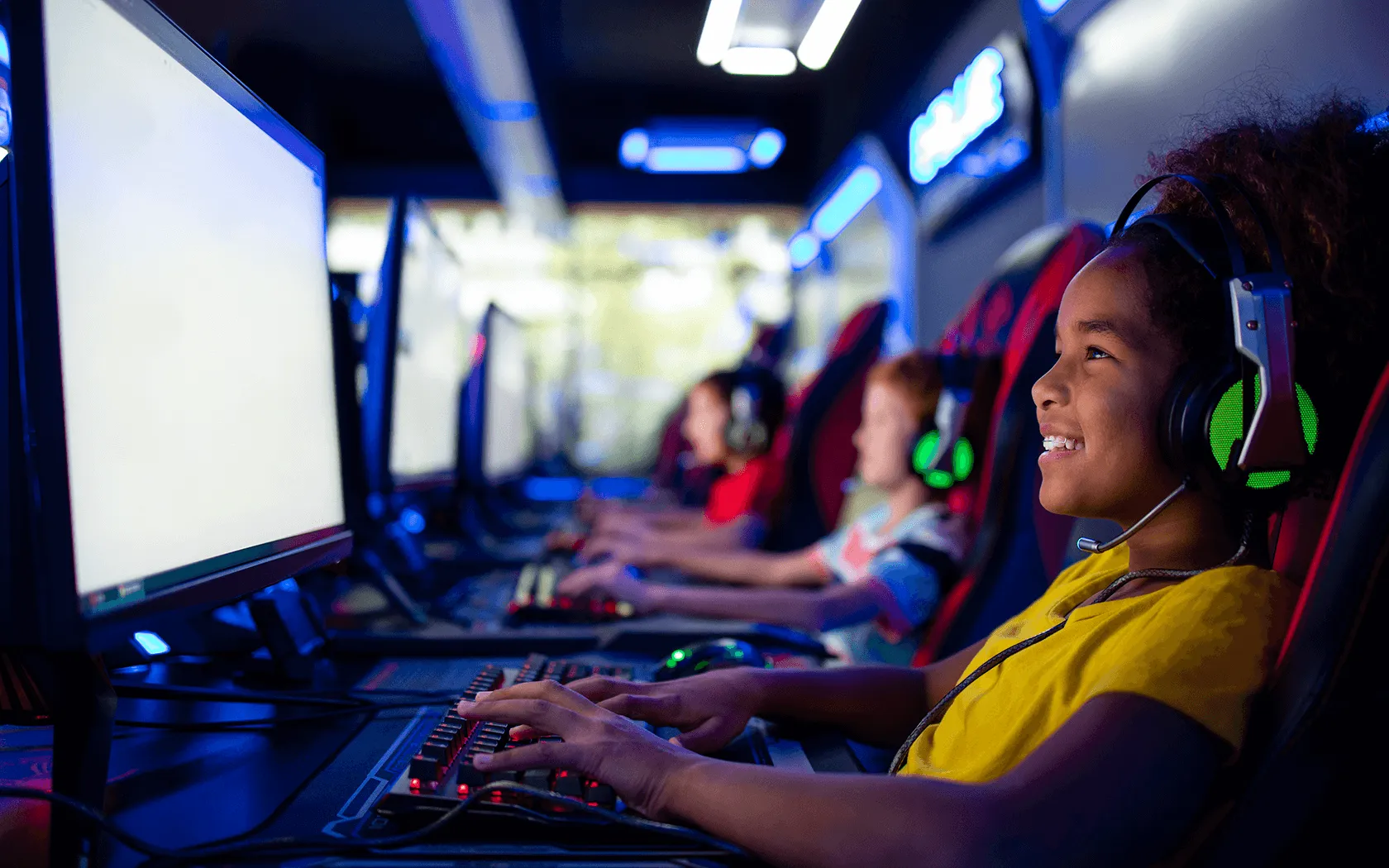
How Old Do Kids Need to Be to Play Esports?
Esports, or electronic sports, is a form of competitive video gaming that has rapidly gained popularity in recent years. With the rise of professional leagues and tournaments, many children are becoming interested in pursuing esports as a potential career path. However, there has been some debate about the appropriate age for children to start participating in esports. In this article, we will explore the question of how old kids need to be to play esports and discuss the benefits and drawbacks of early involvement.

1. The Evolution of Esports
Before diving into the topic of age requirements for esports, it is important to understand the evolution of this industry. Esports began as a niche hobby, with players competing against each other in local arcades or on their personal computers. However, with the advent of streaming platforms like Twitch and the growth of online gaming communities, esports quickly became a global phenomenon.
Today, there are numerous professional esports leagues and tournaments that offer substantial prize money and attract millions of viewers worldwide. The most popular games for esports competitions include League of Legends, Counter-Strike: Global Offensive, and Dota 2, among others. As the industry continues to grow, more and more children are expressing interest in becoming professional esports players.
2. Pros of Early Participation in Esports
One of the main arguments for allowing children to participate in esports at a young age is the potential for skill development. Just like traditional sports, esports requires practice and dedication to improve one’s skills. By starting early, children can develop a strong foundation and potentially become top-level players by the time they reach adulthood.
Moreover, playing esports can help children develop hand-eye coordination, strategic thinking, and teamwork skills. Many popular esports titles require precise movements and quick decision-making, which can contribute to the overall cognitive development of children. Additionally, playing on a team can teach children important communication and collaboration skills that are transferable to other areas of life.
2.1 The Role of Parental Involvement
For children who are interested in pursuing esports, it is crucial for parents to be actively involved in their child’s gaming journey. This includes setting limits on screen time, ensuring a healthy balance between gaming and other activities, and monitoring the games their child plays. By being actively involved, parents can help their child develop good habits and avoid becoming too consumed by gaming.
Additionally, parental involvement can also help children navigate the potential risks associated with early participation in esports. This includes exposure to inappropriate content, cyberbullying, and online predators. Parents should educate themselves about the games their child is playing and monitor their online interactions to ensure their safety.
3. Cons of Early Participation in Esports

While there are certainly benefits to children participating in esports at a young age, there are also some drawbacks that must be considered. One of the main concerns is the potential negative impact on a child’s physical and mental health. Many popular esports titles require long hours of sitting in front of a screen, which can lead to a sedentary lifestyle and health issues such as obesity and eye strain.
Moreover, the competitive nature of esports can also take a toll on a child’s mental well-being. The pressure to perform well and win can lead to stress, anxiety, and even burnout. It is essential for parents to monitor their child’s emotional state and address any signs of distress or fatigue.
3.1 Balancing School and Gaming
Another potential issue with early participation in esports is the impact on a child’s education. With the growing popularity of esports, many schools have started offering esports programs and teams. While this may seem like a great opportunity for children to pursue their passion, it can also create conflicts with schoolwork and other extracurricular activities.
It is important for parents and children to find a balance between school and gaming, ensuring that academic responsibilities are not neglected. This can involve setting strict schedules for gaming and implementing consequences for falling behind in schoolwork.
4. Age Requirements for Professional Esports
Unlike traditional sports, there is no universally agreed-upon age requirement for professional esports competitions. Some tournaments have age restrictions, while others allow players of any age to compete. In general, most major esports leagues require players to be at least 16 years old, with some exceptions for younger players who have received special permission or have parent/legal guardian consent.
However, it is worth noting that even if a child meets the age requirements for professional esports, it does not necessarily mean they are developmentally ready to handle the pressures and demands of competitive gaming. Parents should carefully consider their child’s maturity level and readiness before allowing them to pursue esports at a professional level.
4.1 Protecting Children from Exploitation
One of the reasons why there is no standard age requirement for professional esports is the concern for protecting children from exploitation. There have been cases where young gamers have been taken advantage of by coaches, team managers, and sponsors. It is essential for parents to be involved in their child’s esports career and to carefully vet any potential coaches or organizations.
Moreover, many professional esports players also face grueling schedules and intense pressure to perform well, which can take a toll on their physical and mental health. Parents must be aware of these potential risks and ensure that their child has a support system in place to mitigate them.
5. Responsible Gaming for Kids

Regardless of whether a child is pursuing esports professionally or as a hobby, it is crucial for parents to promote responsible gaming habits. This includes setting limits on screen time, encouraging breaks every hour, and monitoring the types of games their child is playing. Parents should also discuss the potential risks associated with online gaming, such as cyberbullying and exposure to inappropriate content.
5.1 The Importance of Setting Limits
Setting limits on screen time is crucial for children who are interested in esports. While it may be tempting to allow them to play for hours on end, this can have negative consequences for their health and well-being. Parents should set a daily or weekly limit and stick to it, even if their child protests.
Moreover, it is also important to encourage breaks every hour to avoid eye strain and promote physical activity. This can involve setting a timer for gaming sessions and having the child engage in a different activity during breaks, such as going outside or playing a board game.
6. Conclusion
In conclusion, the appropriate age for children to start playing esports is subjective and largely depends on their individual maturity level and readiness. While there are certainly benefits to early participation, parents must also consider the potential drawbacks and take an active role in promoting responsible gaming habits. By finding a balance between gaming and other activities, monitoring their child’s emotional and physical well-being, and setting limits, parents can support their child’s interest in esports while ensuring their overall health and development is not compromised.


